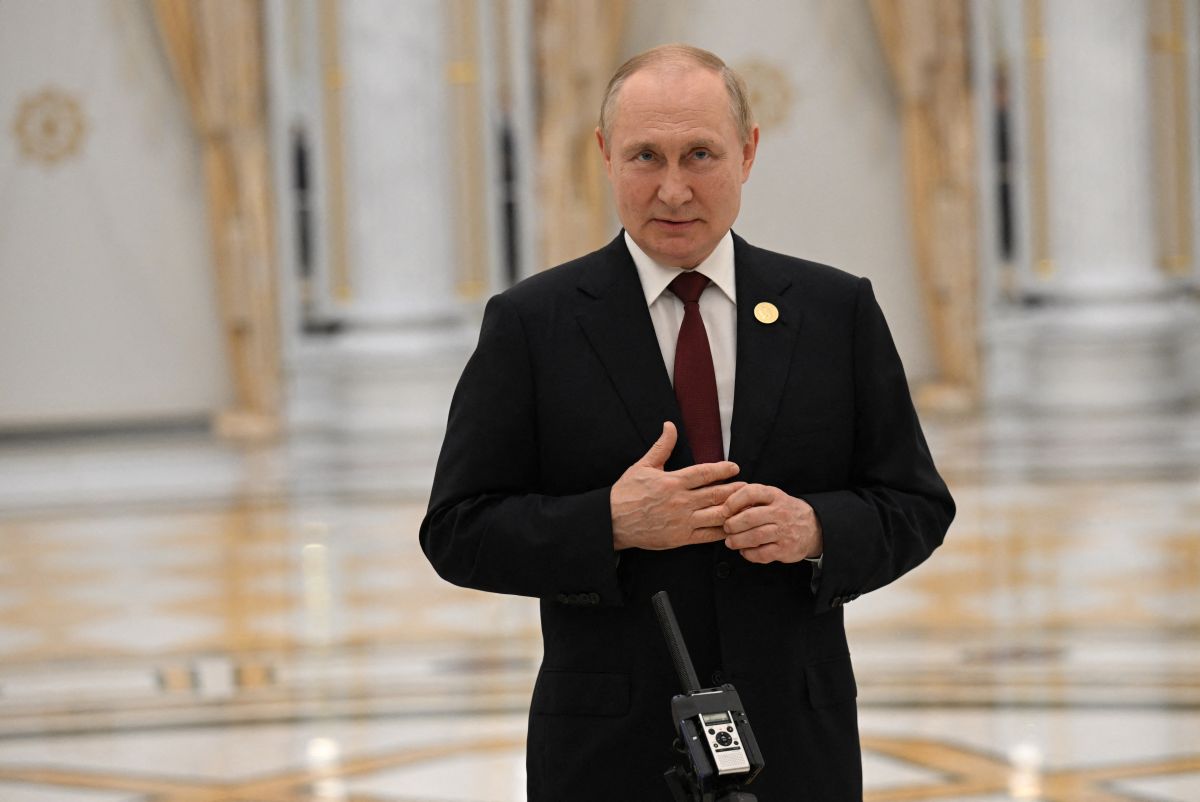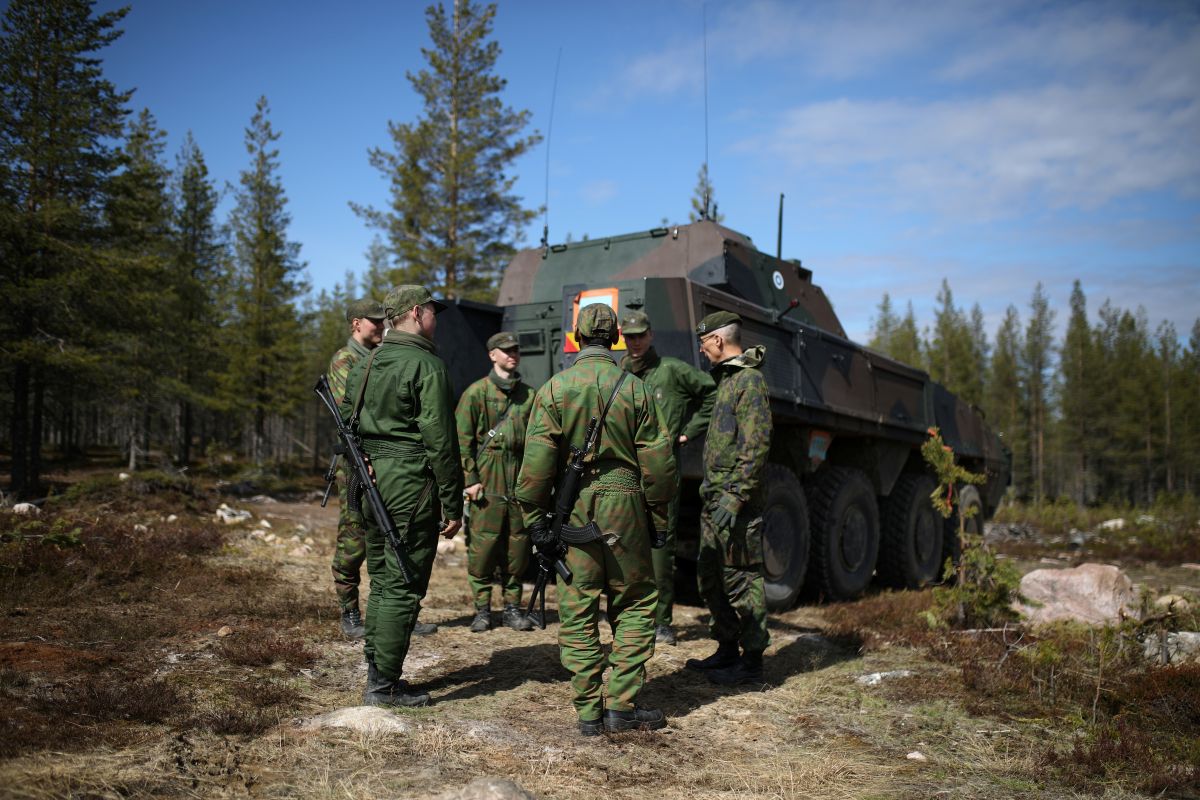Russia's Reaction to the NATO Summit in Madrid
The NATO Madrid summit decisions were described by the Russian authorities as confirmation of the Alliance’s hostile policy towards Russia. At the same time, their reaction was subdued, which does not mean, however, that they are disregarding the decisions made by the Alliance. In response to NATO increasing deterrence and defence capabilities on the Eastern Flank, Russia is likely to further strengthen the Western Military District and deepen its military integration with Belarus. The dislocation of more Russian troops to Belarusian territory will create new challenges for regional security.
 SPUTNIK/ Reuters/ FORUM
SPUTNIK/ Reuters/ FORUM
What were some specific Russian reactions to the NATO summit decisions?
In the Alliance's strategic concept adopted at the Madrid summit, NATO identifies Russia as the greatest direct threat to its members’ security. NATO also decided to accept Finland and Sweden, which, once approved, will extend the Alliance’s border with Russia by more than 1,300 km and in practice will make the Baltic Sea internal NATO waters. Despite the relatively subdued Russian reactions and attempts to depreciate the decisions of the Madrid summit, the announcements by the allies of the decisions were closely followed in Russia. Vladimir Putin, referred to the accession of Finland and Sweden in stating that while Russia had not had any disputes with these countries before, when NATO infrastructure and military contingents appear on their territory, it would be met with a Russian response dependent on the scale of NATO’s activities. Moreover, the Russian leader accused the Alliance of acting against Russia since 2014. In turn, Konstantin Kosachev, the deputy chairman of the Federation Council (the Russian parliament’s upper house), called the decisions of the Madrid summit “an empty shell”. He added that the greatest evil for Europe is NATO and that each strengthening of the Alliance means an expansion of conflicts. The decision to increase the rapid-reaction forces and to strengthen the military components on the Eastern Flank was assessed by Russian politicians as destroying the prospects for the quick reconstruction of the security architecture in Europe.
What can Russia do?
In response to the Madrid summit decisions, Putin and the Russian Ministry of Defence announced that the Russian military presence will be increased in the west of the country, as well as the protection of its border with Finland. This will mean the transfer of military units and equipment along the Finnish border (currently Russian troops, apart from the vicinity of Petersburg and Murmansk, are not deployed there), including equipment such as the Iskander-M short-range ballistic missile system (NATO: SS-26 Stone), which has the range to cover Helsinki from the border area. The number of FSB officers responsible for border protection also will be increased. Moreover, the number of Russian exercises in the Baltic Sea and the Far North (including the Barents Sea) is likely to increase, with scenarios targeting NATO countries, especially Finland and Sweden. Both these countries, as well as other NATO members, can expect an intensification of hybrid activities, including cyberattacks primarily against critical infrastructure, disinformation campaigns, and military international incidents in the Baltic Sea and along the Finnish-Russian border. What is more, Russia announced a significant reduction of cross-border cooperation with Finland (already suspended in March by Finland and the European Commission) and regional cooperation with Sweden. It stressed that in several forums, including the Barents Euro-Arctic Council (at the beginning of March this year, other Council members announced that they would suspend cooperation with Russia), and the Arctic Council (Russia holds the presidency until 2023), Russia will be the only country not belonging to NATO. It can be expected that Russian representatives will torpedo the work of these bodies.
What will further Belarusian-Russian integration look like?
One of the reactions to the strengthening of NATO forces on the Eastern Flank will be to further deepen military integration with Belarus. This means the deployment of Iskander-M systems and the modernisation of Belarusian Su-25 bombers (Frogfoot) so that they can carry tactical nuclear weapons. A decision on the permanent or rotational deployment of Russian troops to Belarus, especially in the south of the country, where a Southern Operational Command is to be established, which will pose challenges for Ukraine, also can be expected. Moreover, Russia will intend to strengthen the joint Russian-Belarusian air defence system. This will increase the number of Russian airplanes patrolling the border with NATO and could lead to incidents involving them. The deployment of additional S-400 surface-to-air missile systems (SA-21 Growler) also can be expected. Russia and Belarus will also increase the number of joint exercises conducted on Belarusian territory. Thus, in the operational dimension, NATO should treat Belarus as part of the Russian military space.





(1)_sm.jpg)